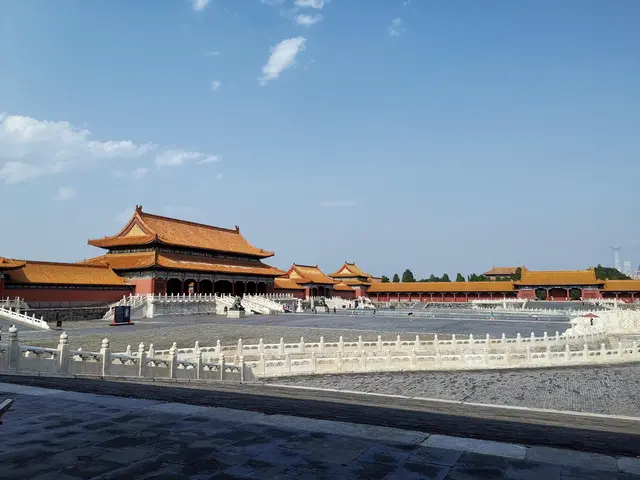More than just a media buzzword, "big data" means big business for Wang Chuanjiu, founder of a Beijing-based IT company.
The phrase refers to a collection of data sets too large and complex for traditional management tools to process. The many challenges of working with big data include data capture, storage, search, and analysis.
In order to profit from the burgeoning big data business, government support is essential for Wang, as buying data comes with a high cost.
"Before, we had to buy all the data from map services," said Wang, whose RealTraffic Info-Tech Co., Ltd. is a leading real-time traffic information service provider.
The introduction of a data sharing website by the Beijing municipal government a year ago has given Wang's business a big boost.
"The government disclosed some public transportation data, including detailed subway, bus and road layouts, which can save us millions of yuan a year," said Wang, who is developing a bus travel application.
Although the adoption of big data processing technology remains relatively slow, China is expected to be one of the industry's biggest markets in coming years.
With a population of 1.3 billion, a rapidly expanding economy and rising rates of Internet and smartphone use, China generates an immense amount of data annually.
If streams of that data can be appropriately sifted, analyzed and stored, companies are more likely to grasp consumer trends and make money from the information.
"Data mining has become an important driver for business innovation," said Tong Tengfei, deputy director of Beijing Municipal Commission of Economy and Information Technology.
A large amount of data is controlled or monopolized by the government, said Tong, adding that the development of the big data industry cannot succeed without the government's support.
"We need to classify different data and provide it free for development to create more value," he said.
The data-sharing website (www.bjdata.gov.cn) offers about 400 data packages from 29 government departments dealing with tourism, education, transportation and medical care.
The release of government data has been a common practice worldwide to boost social and economic development.
Data.One, a portal run by the Hong Kong Special Administrative Region Government, provides hundreds of databases free-of-charge for commercial or non-commercial purposes, including data on air pollution, buildings, food and environmental hygiene, public transport and real-time traffic data.
Data will be as fundamental an economic resource as land, oil and capital in the future, according to U.S. IT expert Victor Mayer-Schonberger in his latest book, "Big Data: A Revolution That Will Transform How We Live, Work and Think."
With high expectations for big data's dividends, Chinese local governments are exploring ways to take advantage of the information.
The transportation department of east China's Zhejiang Province announced earlier this year that it would introduce big data in traffic management to deal with gridlock.
The science and technology commission of China's commercial hub of Shanghai released a three-year plan (2013-2015) in July to boost research and development of big data, focusing on the sharing of data related to medical care, food safety and transportation.
A boom of smart city construction across China, which aims to digitize community services and information such as bus timetables, also poses great opportunities for the industry.
Official data showed that financial institutions, including China Development Bank, the country's policy bank, have promised to loan no less than 440 billion yuan (72 billion U.S.dollars) to fund the construction of smart cities since the launch of the country's smart city program last November.
Breaking information monopoly urged
Although the development of big data in China has gained momentum, it still faces great challenges ahead.
Many government departments are reluctant to disclose data, preventing businesses from using the information, said Tong Tengfei.
Wang Chuanjiu, who wants to obtain real-time public bus information, has long been nagged by this problem.
"Actually the public buses are all equipped with GPS, so it's not difficult to disclose the data," he said. "If we cannot get that information, it is impossible for us to develop an application for public bus travel."
Meanwhile, information is always scattered among different government departments, which hampers the integration and use of data.
When the government of the eastern city of Nanjing was planning to initiate a smart transportation program, it found that information was spread throughout the public security, traffic management, transportation, housing, environmental protection and planning departments.
"It is hard to coordinate," said Weng Xiaoyong, an official with the Nanjing municipal development and reform commission.
At the same time, some government departments refuse to share the information, using the excuse of confidentiality, Xinhua reporters have discovered.
"The disclosure of data is not a technical problem but a problem of awareness," said Dong Baoqing, deputy director of the Information Promotion Department with the Ministry of Industry and Information Technology.
"Governments should be aware of service," he said. "They should not be inattentive to information disclosure."
Governments should make a clear distinction between confidential information, commercial information and public information, he said.
Dong suggested the introduction of a central government framework to coordinate the disclosure and use of data.
Warning of some local governments' failures to publicize information in a timely manner, a circular released last Tuesday from the State Council, China's cabinet, called on local governments to adopt various new media channels to release information and interact with the public.
"Governments should serve the public and prompt social development, instead of becoming stumbling blocks on the path of development," said Wang Yukai, a professor at the Chinese Academy of Governance.
 简体中文
简体中文

